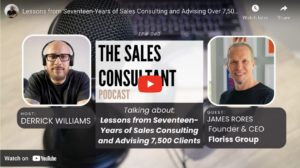Regardless of the figure itself, the fact remains that most companies experience higher rates of success when filling non-sales positions than sales positions.
Why is this?
First, salespeople are different, and the jobs they do require them to recognize and overcome different challenges to be successful. Second, hiring best practices are not modified to reflect these differences, which means recruiting specialists and sales leaders don’t gain the insights required to make high-probability hiring decisions.
Finding salespeople that are truly talented in sales AND can fit or adapt to the organization’s selling model is a challenge. Without adequate reform to the way companies hire salespeople, turnover and attrition will continue to be among the biggest threats to your sales success.
The Unique Challenges of Hiring Salespeople
Let’s explore some of the most common challenges that make salespeople and their jobs different from non-selling roles:
Competitive Forces
While your salesperson is doing her best to engage prospective customers and lead them to successful buying decisions, salespeople from other companies will be working just as hard to prevent her from being successful. In order to compete and win, your salesperson must have the additional skills required to self-identify and overcome her own lack of knowledge, resistance to change, need for perfection, complacency, and lack of confidence. Not only does she need to know her job; she must also be able to anticipate and adjust in real-time to those forces working just as hard to prevent her from doing her job.
Dealing with Rejection
There is no selling without rejection. Your new salesperson will get more than her fair share as she attempts to book appointments, qualify new opportunities, lead successful buying cycles, and exceed monthly goals. Your new hire must have the resilience necessary to overcome a consistent barrage of these experiences while summoning the commitment and will to remain upbeat and positive.
Handling Resistance
Most decision-makers don’t make time in their day to speak with salespeople. Your new hire will call into an account list full of contacts who are busy doing other things. Busy buyers can sound rushed, irritated, cold, disinterested, or even hostile when their day is interrupted, regardless of their level of interest in what the salesperson can offer. Your new salesperson must have the requisite skills and emotional intelligence required to overcome these experiences while remaining upbeat, positive, and on-brand.
Timing Is Everything
Your salespeople can meet buyers at early and late stages of the buying cycle. They can engage decision-makers when they are envisioning new initiatives, or they can engage evaluators when they are preparing competitive bake-offs. In either case, your salespeople must avoid getting baited into early presentations or proposals that would lower win rates and the value of their pipelines.
Having Limited Control
Even when your new salesperson does everything correctly, he ultimately has limited control over a buyer’s (or buying center’s) ultimate decision. He must be happy practicing and playing a game of probability, where the best he can do is win more than he loses as well as win bigger and lose smaller over time. To assert maximum control over the sales process, he must have the discipline and skill to lead customers through their own buying cycles. For this reason, sales is one of the most challenging forms of leadership on the planet!
What Organizations Can Do to Prevent Salesforce Attrition
It takes a special individual to persevere in the face of the adversity that awaits salespeople every working day of their career. Here are a few critical questions to consider when looking at how to improve your sales hiring process:
- Does your hiring process recognize and account for the diversity of experiences and skills required by each role within your sales organization?
- Does your hiring process properly prepare recruiting specialists and hiring managers for the challenge of sourcing, screening, and selecting candidates who CAN and WILL succeed?
- Does your hiring manager understand the fit between each candidate and the sales role, even though you may only engage each candidate a handful of times?
- Does your hiring process ask enough good and tough questions to identify the mindset, skillset, and toolset gaps in each candidate so your hiring manager can execute a rapid and successful onboarding plan?
If you’re feeling unsure about your answers to these questions or just curious about our perspective, contact us for our list of 38 possible areas of improvement. Rest assured, if there is an opportunity to improve your sales hiring process, our list will help you find it.










